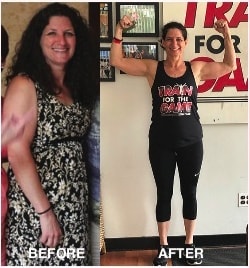Whether you're a bodybuilder, a professional athlete in training, or exercise to better your mental and physical health, sports nutrition is essential to maximize the positive impacts of physical activity. Knowing where to begin with so much contradicting information readily available is challenging, but making educated decisions about your diet and hydration can lead to greater performance, injury prevention, and quicker recovery. A qualified nutritionist can guide your choices in this situation, ultimately boosting your performance.
Nutrition experts provide a range of services to help you achieve your health and athletic goals. This can take the form of a detailed nutrition plan for training and competitions, a daily food journal, advice on what to eat after working out, or all of the above.
Basics
The food and fluids we consume provide the energy needed for living and physical activity. The following dietary groups contain the macronutrients needed for healthy bodily function:
The body gets its energy from food. The sort of energy source (i.e., food supply) utilized varies depending on the length and intensity of exercise. All food sources—carbohydrates, fat, and protein—contribute to the body's requirement for energy during exercise and rest. The body prefers carbohydrates as its primary energy source, followed by fat and protein as its secondary and least favored energy sources. Protein is more suited for the development of muscles and other tissues. Exercises of various kinds and intensities consume different types of energy more than others.Carbs
The primary energy source in food is carbohydrates. Milk, yogurt, grains, fruits, and vegetables are high in carbohydrates. They are often quick to digest and simple to obtain to consume energy. The body stores carbs as glycogen, a readily used energy source, in the liver and skeletal muscle. Because they are an excellent source of energy for aerobic and anaerobic exercise, carbohydrates are crucial for athletes.
Protein
Although one of the most essential nutrients, protein is not the body's first choice for fuel. The "building block" of all body tissues is protein. It is a part of the body's enzymes and contributes to the structure of body tissue. For athletes who focus on strength and endurance, protein is highly crucial. Meat, dairy products, and a few grains like quinoa are the sources of protein that are the most complete. Good plant protein sources include legumes, nuts, seeds, quinoa, beans, and nut butter.
Fat
Any diet must include fat because it aids nutrient absorption and is a fantastic energy source. However, even though fats are essential, we should nonetheless make an effort to control our intake. Large amounts could increase the risk of significant health issues and contribute to excessive weight gain.
Supplements
Athletes, bodybuilders, and sportspeople frequently use supplements to improve their strength, performance, and recovery. Before choosing to use any supplement, people should ensure their diet is wholesome, balanced, and appropriate for their sport. Suppose someone does decide to take additional nutrients in supplement form. In that case, they should always seek the advice of a qualified nutritionist with expertise in sports nutrition or an authorized sports dietitian. They'll be able to determine whether you're a good candidate for a particular supplement.
Hydration
When participating in sports, staying hydrated is essential because a lack of fluid intake causes dehydration because the body is trying to cool down via sweating. This impairs your performance and poses a severe risk to your health, and can lead to subsequent issues. Dehydration can occur throughout any activity, although it is more common during hot, muggy exercise.
Role of a Sports Nutritionist
A sports nutritionist can provide a customized nutrition plan to support a person's training schedule and goals. The program includes food and fluids that are essential for better health and athletic performance. Specialized nutrition can also promote wellness, assist with weight management, enhance focus, develop body composition and growth, and speed up recovery. Therefore, a sports nutritionist will evaluate a person's lifestyle, daily routines, supplements, and frequent prescription needs in addition to their training and food to develop the optimum nutrition approach.
Sports nutrition includes a person’s specific body type, training regimen, and athletic goals, so it’s important to get certified before you plan on helping others. American Sports & Fitness Association online nutritionists certifications are designed to help anyone who is interested in making a career in this field. Undoubtedly, our courses provide updated information about the evolving industry of nutrition!


